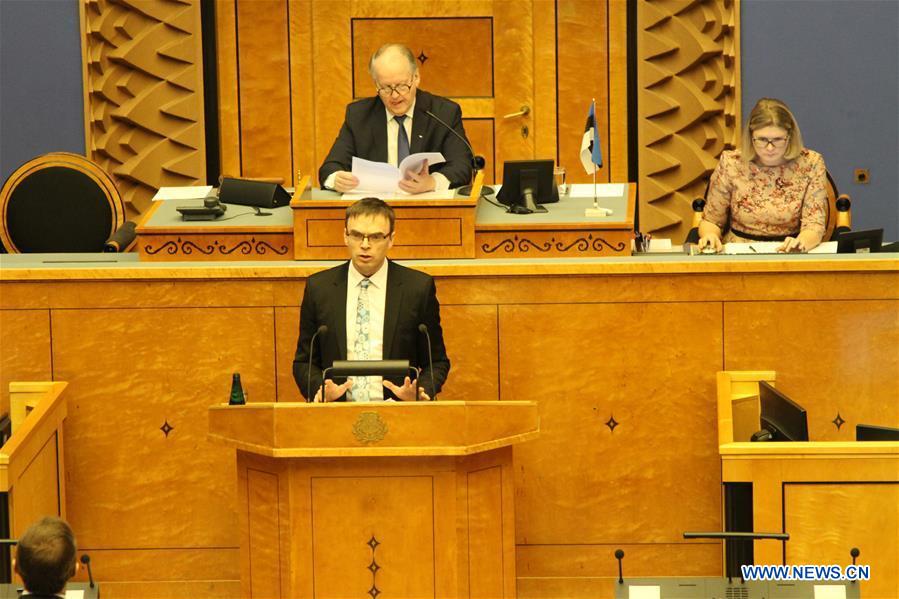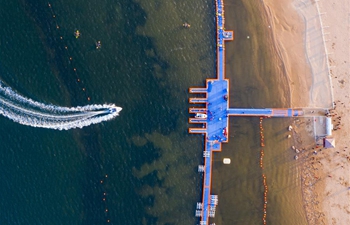
Estonian Foreign Minister Sven Mikser (Front) delivers his annual speech on foreign policy at the Estonian parliament Riigikogu in Tallinn, capital of Estonia, on Feb. 12, 2019. The EU seven-year financial framework 2021-2027 should support priorities of digital solutions, data economy and cyber security, while maintaining traditional policies, such as the continued increase of cohesion, and the common agricultural policy, said Estonian Foreign Minister Sven Mikser on Tuesday. (Xinhua/Guo Chunju)
TALLINN, Feb. 12 (Xinhua) -- The EU seven-year financial framework 2021-2027 should support priorities of digital solutions, data economy and cyber security, while maintaining traditional policies, such as the continued increase of cohesion, and the common agricultural policy, said Estonian Foreign Minister Sven Mikser on Tuesday.
Delivering his annual speech on foreign policy at the Estonian parliament Riigikogu, Mikser reviewed Estonia's about 15 years of EU membership since May 1, 2004, stressing that common decision-making and policies amplify Estonian policies and economic development and that cooperation increases the influence of small states.
On Brexit, Britain's withdrawal from the EU, Mikser said, "The resolution of Brexit is not clear yet but the United Kingdom will remain an important partner for Estonia even outside the European Union. "
"We would like to put the current 'divorce proceedings' behind us with minimal losses and focus on building a new efficient relationship that covers economy and trade, internal and external security, youth and student exchange, digital and cyber issues, and science. We are also making coordinated efforts to prevent our citizens and businesses from suffering because of Brexit," he added.
Mikser listed Estonia's bid to become a non-permanent member of the UN Security Council 2020-2021 to be determined this June among one of its foreign policy challenges as "the global map of threats was becoming increasingly complex".
The Estonian foreign minister also talked about transatlantic relations, the active encouragement of free trade, security, rules-based order, EU's Eastern Partnership and EU's Southern Neighbourhood, the digital dimension of foreign policy and the national cyber defence system.
He also called for efforts to attain the promised 0.33 percent of Estonia's GDP for development cooperation and humanitarian aid from the current 0.18 percent.











